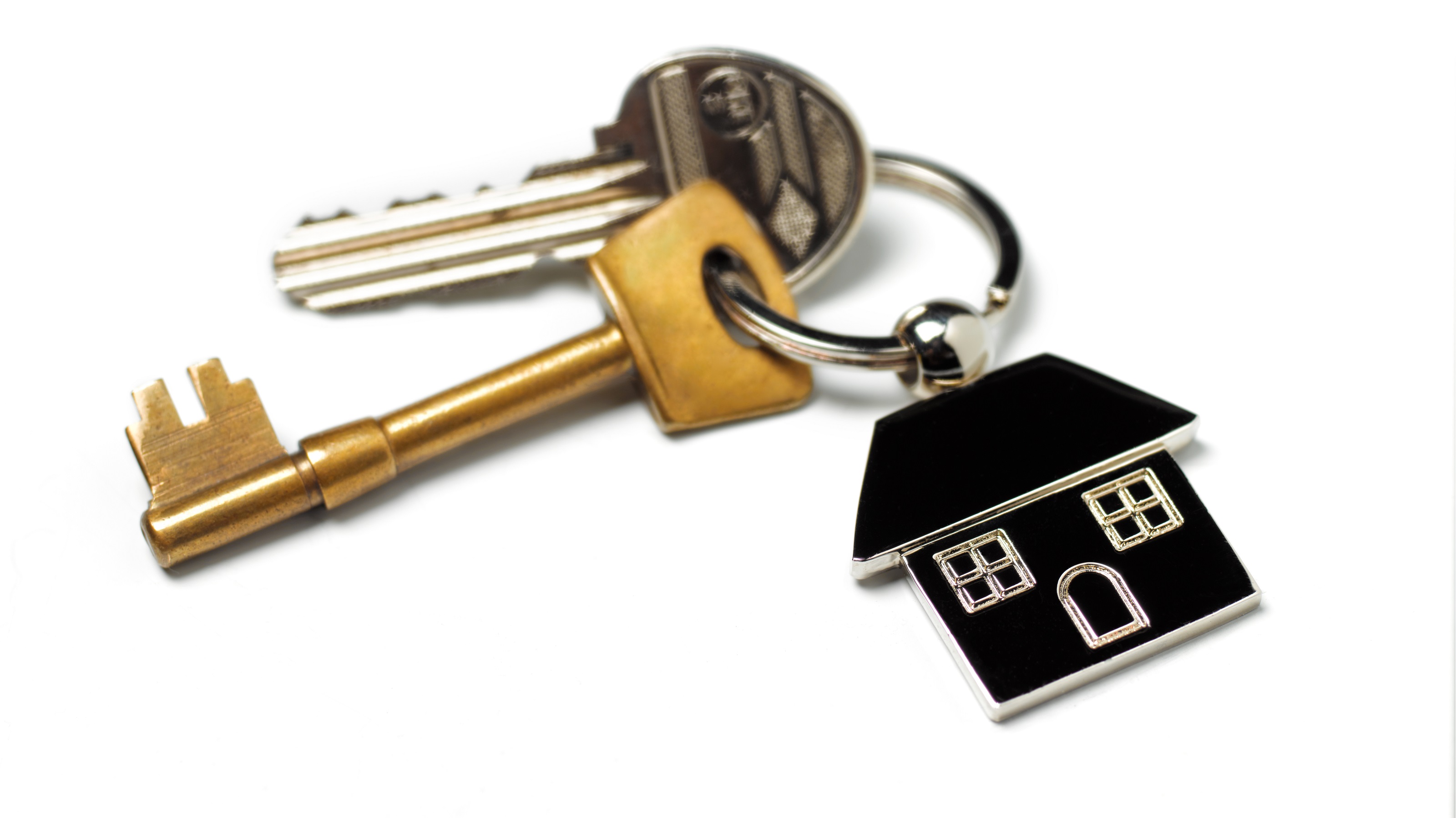What to Do With That Extra Cash in Your Checking Account
Because of inflation, that money is losing purchasing power, so don’t let it sit on the sidelines. Here are three ways to put it to work for you.


Profit and prosper with the best of Kiplinger's advice on investing, taxes, retirement, personal finance and much more. Delivered daily. Enter your email in the box and click Sign Me Up.
You are now subscribed
Your newsletter sign-up was successful
Want to add more newsletters?

Delivered daily
Kiplinger Today
Profit and prosper with the best of Kiplinger's advice on investing, taxes, retirement, personal finance and much more delivered daily. Smart money moves start here.

Sent five days a week
Kiplinger A Step Ahead
Get practical help to make better financial decisions in your everyday life, from spending to savings on top deals.

Delivered daily
Kiplinger Closing Bell
Get today's biggest financial and investing headlines delivered to your inbox every day the U.S. stock market is open.

Sent twice a week
Kiplinger Adviser Intel
Financial pros across the country share best practices and fresh tactics to preserve and grow your wealth.

Delivered weekly
Kiplinger Tax Tips
Trim your federal and state tax bills with practical tax-planning and tax-cutting strategies.

Sent twice a week
Kiplinger Retirement Tips
Your twice-a-week guide to planning and enjoying a financially secure and richly rewarding retirement

Sent bimonthly.
Kiplinger Adviser Angle
Insights for advisers, wealth managers and other financial professionals.

Sent twice a week
Kiplinger Investing Weekly
Your twice-a-week roundup of promising stocks, funds, companies and industries you should consider, ones you should avoid, and why.

Sent weekly for six weeks
Kiplinger Invest for Retirement
Your step-by-step six-part series on how to invest for retirement, from devising a successful strategy to exactly which investments to choose.
Many people are wary to invest, but if you have extra cash sitting around, you can still make it work for you.
In the latest Quarterly Market Perceptions Study from Allianz Life, just 19% of Americans said they are comfortable with current market conditions and ready to invest now. That is down from 26% last quarter and 29% at this time last year.
What’s more, 64% said they would rather have their money sit in cash than endure market swings.
This feeling is likely driven by worry about market volatility and the risk of a recession. The majority of Americans (77%) said they think the market will continue to be very volatile in 2023. And 62% said they worry a major recession is right around the corner.
Listen, don’t have your money just sit in cash on the sideline not working for you. Instead, consider making decisions that can set you up for a more secure financial future. Financial consultants recommend that you have up to three months’ worth of expenses in cash set aside as an emergency fund — this is likely sound advice and not the cash we’re discussing here.
The risks posed by inflation or a prolonged market downturn are real. And for people approaching or in retirement, the tolerance for risk is likely lower than those who have years ahead to rebuild their portfolio if a recession hits. But, leaving money in cash doesn’t address one of Americans’ largest concerns these days — inflation. With today’s inflation, you are likely losing purchasing power letting your money sit in an everyday checking account.
Here are three things to consider doing with your money instead.

1. Pay Off High-Interest Debt.
Investing inherently has risk. And maybe these days, your tolerance for new risk is zero.
Cash that is sitting in a checking account could be used to pay off high-interest debt. That way, you’re still bettering your financial future without taking on new risk. By proactively paying off high-interest debt, you will reduce the amount you will pay in the long run.
High-interest debt is usually considered anything with a higher rate than a mortgage or federal student loan. So, credit cards with interest rates around 15% or a private student loan with a 12% interest rate would both be considered high-interest debt. Paying off a credit card with a high interest rate will reduce the total amount you will pay over time by avoiding future interest.

2. Limit Your Exposure to Market Risk.
You might be thinking that you’ll invest that cash at a later date. Maybe when you think the market has bottomed out, or the volatility has subsided. This might be a bad idea — trying to time the market has historically been a failure. The bulk of gains made during a market recovery will happen on just a few trading days at the beginning of the recovery. That means, if you time it wrong and miss those days, you will be behind.
You can take part in the market and limit your exposure to risk. You can invest in stocks that are less volatile than the market as a whole or choose stocks that historically pay dividends. An emerging investment category — exchange-traded funds (ETFs) — represent a basket of securities and are traded like stocks on stock exchanges, most with relatively low fees. There are different kinds of ETFs that have different benefits. If lowering exposure to market risk is a top concern, a buffered ETF may be a good option. Those ETFs can help manage downside exposure.

3. Invest in Your Future.
Determining your financial goals will help figure out how that money in cash could help you achieve them.
Maybe you have some shorter-term goals, like saving for a down payment on a house. If you’re thinking that purchase will happen soon, keeping money in cash may make sense. For goals further in the future, investing at least a portion of your excess cash in some growth opportunities may be wise so you have more invested in the future.
Saving for retirement is a lifelong goal. If your cash reserve is growing every month, you might want to take a look at increasing your 401(k) contribution. If your employer offers a match on your contributions, make sure you take full advantage of that benefit — it’s like getting free money. You don’t want to pass up on any free money, do you?
If you have an IRA that was funded with rollovers from previous employer plans, you may want to talk to a financial professional about ways to invest for growth and protection. Depending on how close you are to retirement, investing in a fixed index annuity (FIA) with principal protection may be an option, or if you want more growth with a level of protection, a buffered registered index linked annuity (RILA) may be able to offer you the protection you desire with the future growth you may need.
In the end, you want your money to be working for you and toward your financial future. Letting money sit in cash with today’s interest rates is likely losing purchasing power. Make sure that even in this volatile market, you make financial decisions on behalf of your future self.
--
Allianz Life conducted an online survey, the 2022 Q4 Quarterly Market Perceptions Study in December 2022 with a nationally representative sample of 1,005 Respondents age 18+.
Investment involves risk including possible loss of principal. There is no guarantee the ETF funds will achieve their investment objectives and may not be suitable for all investors. Investors should consider the investment objectives, risks, charges, and expenses carefully before investing.
Annuity protection benefits are backed by the financial strength and claims-paying ability of the issuing insurance company.
This article was written by and presents the views of our contributing adviser, not the Kiplinger editorial staff. You can check adviser records with the SEC or with FINRA.
Profit and prosper with the best of Kiplinger's advice on investing, taxes, retirement, personal finance and much more. Delivered daily. Enter your email in the box and click Sign Me Up.

Kelly LaVigne is vice president of advanced markets for Allianz Life Insurance Co., where he is responsible for the development of programs that assist financial professionals in serving clients with retirement, estate planning and tax-related strategies.
-
 Nasdaq Leads a Rocky Risk-On Rally: Stock Market Today
Nasdaq Leads a Rocky Risk-On Rally: Stock Market TodayAnother worrying bout of late-session weakness couldn't take down the main equity indexes on Wednesday.
-
 Quiz: Do You Know How to Avoid the "Medigap Trap?"
Quiz: Do You Know How to Avoid the "Medigap Trap?"Quiz Test your basic knowledge of the "Medigap Trap" in our quick quiz.
-
 5 Top Tax-Efficient Mutual Funds for Smarter Investing
5 Top Tax-Efficient Mutual Funds for Smarter InvestingMutual funds are many things, but "tax-friendly" usually isn't one of them. These are the exceptions.
-
 Social Security Break-Even Math Is Helpful, But Don't Let It Dictate When You'll File
Social Security Break-Even Math Is Helpful, But Don't Let It Dictate When You'll FileYour Social Security break-even age tells you how long you'd need to live for delaying to pay off, but shouldn't be the sole basis for deciding when to claim.
-
 I'm an Opportunity Zone Pro: This Is How to Deliver Roth-Like Tax-Free Growth (Without Contribution Limits)
I'm an Opportunity Zone Pro: This Is How to Deliver Roth-Like Tax-Free Growth (Without Contribution Limits)Investors who combine Roth IRAs, the gold standard of tax-free savings, with qualified opportunity funds could enjoy decades of tax-free growth.
-
 One of the Most Powerful Wealth-Building Moves a Woman Can Make: A Midcareer Pivot
One of the Most Powerful Wealth-Building Moves a Woman Can Make: A Midcareer PivotIf it feels like you can't sustain what you're doing for the next 20 years, it's time for an honest look at what's draining you and what energizes you.
-
 I'm a Wealth Adviser Obsessed With Mahjong: Here Are 8 Ways It Can Teach Us How to Manage Our Money
I'm a Wealth Adviser Obsessed With Mahjong: Here Are 8 Ways It Can Teach Us How to Manage Our MoneyThis increasingly popular Chinese game can teach us not only how to help manage our money but also how important it is to connect with other people.
-
 Looking for a Financial Book That Won't Put Your Young Adult to Sleep? This One Makes 'Cents'
Looking for a Financial Book That Won't Put Your Young Adult to Sleep? This One Makes 'Cents'"Wealth Your Way" by Cosmo DeStefano offers a highly accessible guide for young adults and their parents on building wealth through simple, consistent habits.
-
 Global Uncertainty Has Investors Running Scared: This Is How Advisers Can Reassure Them
Global Uncertainty Has Investors Running Scared: This Is How Advisers Can Reassure ThemHow can advisers reassure clients nervous about their plans in an increasingly complex and rapidly changing world? This conversational framework provides the key.
-
 I'm a Real Estate Investing Pro: This Is How to Use 1031 Exchanges to Scale Up Your Real Estate Empire
I'm a Real Estate Investing Pro: This Is How to Use 1031 Exchanges to Scale Up Your Real Estate EmpireSmall rental properties can be excellent investments, but you can use 1031 exchanges to transition to commercial real estate for bigger wealth-building.
-
 Should You Jump on the Roth Conversion Bandwagon? A Financial Adviser Weighs In
Should You Jump on the Roth Conversion Bandwagon? A Financial Adviser Weighs InRoth conversions are all the rage, but what works well for one household can cause financial strain for another. This is what you should consider before moving ahead.
